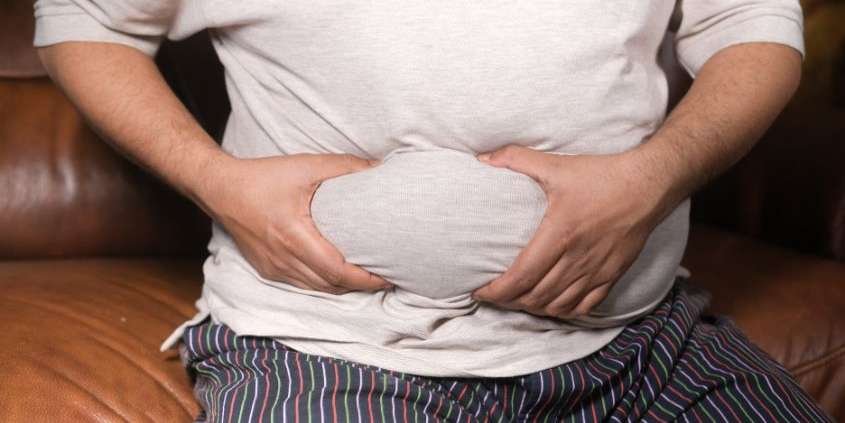So, you’re happily living life, maybe indulging in a little extra pizza or cake now and then, and suddenly—bam!—your gallbladder decides to make itself known in the most dramatic way possible. Who knew this tiny, unassuming organ could cause such chaos? If you’re scratching your head wondering what your gallbladder even does, you’re not alone.
Let’s break it down in a way that makes sense—no medical jargon, just a light-hearted chat about how this little pouch in your body gets a little too cranky, especially when you’re dealing with obesity.
What Even Is the Gallbladder?
Think of the gallbladder as your body’s storage unit for bile. Yeah, not exactly the most glamorous job, but it’s important. Bile is the substance your liver makes to help you digest fats. So, when you eat a cheeseburger or that irresistible slice of cheesecake, your gallbladder gets to work, squirting bile into your digestive system like a helpful sidekick.
Sounds simple, right? Well, it’s all smooth sailing—until things go wrong.
The Gallbladder-Obesity Connection
Obesity and your gallbladder have a bit of a rocky relationship. Let’s picture it this way: When you carry extra weight, especially around your belly, your gallbladder is like a tiny worker in an over-crowded warehouse. There’s too much fat for it to process efficiently, and it starts getting overwhelmed. When that happens, gallstones can form. Think of gallstones like annoying little clogs in your body’s plumbing system—they can block the bile from flowing, causing all kinds of pain and problems.
What Are Gallstones, and Why Should You Care?
Gallstones are like these hardened deposits that form in your gallbladder. They’re a bit like pebbles in your body’s smooth digestive highway, and they’re about as welcome as rocks in your shoes. When they get stuck, you can feel serious pain, often described as a sharp, stabbing sensation in your upper abdomen (not fun, trust me).
If you’ve ever had that post-meal “Why does my stomach feel like it’s staging a protest?” moment, gallstones might be to blame.
How Does Obesity Increase Gallstone Risk?
Here’s where things get interesting: When you’re obese, your liver starts to produce more cholesterol. And guess what? All that extra cholesterol can overload the bile in your gallbladder, making it much easier for gallstones to form.
It’s like having too many toys in a toy box that’s already full—you’re bound to create a mess. And in this case, that mess is gallstones.
The Sneaky Way Gallstones Show Up
The tricky part about gallstones is they don’t always make a grand entrance. Sometimes they hang out silently, lurking in your gallbladder without causing any trouble at all. But when they decide to throw a party, you’ll know. Cue the sudden pain after eating, nausea, vomiting, and sometimes even fever. If the stones block things up for too long, it could mean serious trouble, leading to infections or needing surgery to get that troublesome gallbladder removed.
Can Losing Weight Help?
Absolutely! Dropping a few pounds (but slowly—no crash diets, please!) can help reduce the risk of gallstones and keep your gallbladder happy. It’s kind of like giving that overworked storage unit a break. But here’s the kicker: Losing weight too quickly can actually increase your risk of gallstones. Yep, your body doesn’t like sudden changes, so slow and steady wins the race.
In fact, moderate weight loss—aiming for about 1 to 2 pounds per week—is the sweet spot. This gives your gallbladder a chance to adjust and helps lower your cholesterol levels, which reduces the chances of those pesky stones forming.
Keeping Your Gallbladder in Check
So, how can you keep your gallbladder from staging a rebellion? Here are a few simple tips:
- Eat a Balanced Diet: Focus on a diet rich in fiber (think fruits, veggies, and whole grains) and healthy fats (like those found in avocados, nuts, and olive oil). Avoid too much fatty, fried, or processed food, which can send your gallbladder into overdrive.
- Stay Active: Regular exercise helps maintain a healthy weight and keeps everything in your digestive system flowing smoothly. Plus, moving more can help prevent obesity-related complications, gallstones included.
- Drink Water: Staying hydrated helps your body’s bile do its job better. It’s like adding a little extra lubricant to keep things running smoothly.
- Don’t Skip Meals: Skipping meals or fasting can cause bile to build up, increasing the chance of gallstones. Eating small, regular meals keeps your gallbladder in working order without overwhelming it.
Final Thoughts
Your gallbladder might be small, but when it’s unhappy, it can cause some serious problems. And while obesity can increase your risk of gallstones, the good news is that by making small, manageable changes—like improving your diet and staying active—you can help keep things running smoothly in your body.
So, next time you reach for that second slice of pizza, just remember: your gallbladder is working hard behind the scenes. Treat it well, and it’ll keep you out of the doctor’s office—and out of the pain zone.



